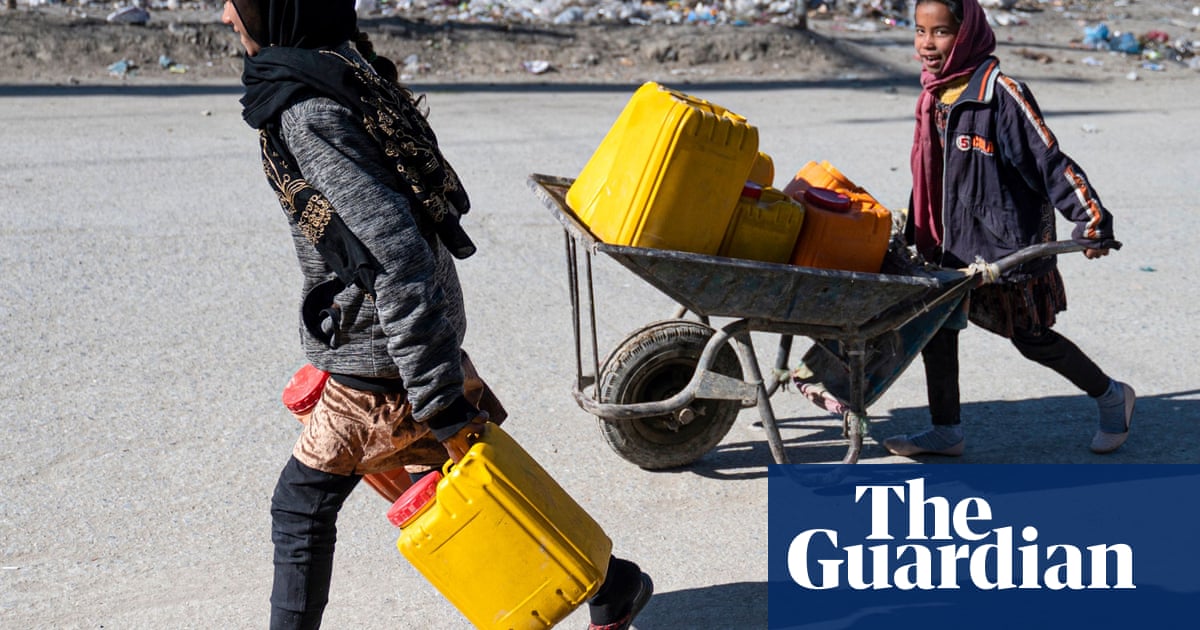Kabul could become the first modern city to completely run out of water, experts have warned.
Water levels within Kabul’s aquifers have dropped by up to 30 metres over the past decade owing to rapid urbanisation and climate breakdown, according toa report by the NGO Mercy Corps.
Meanwhile, almost half of the city’s boreholes – the primary source of drinking water for Kabul residents – have dried out.Waterextraction currently exceeds the natural recharge rate by 44m cubic metres each year.
If these trends continue, all of Kabul’s aquifers will run dry as early as 2030, posing an existential threat to the city’s seven million inhabitants.
“There should be a committed effort to document this better and to draw international attention to the need to address the crisis,” said Mercy CorpsAfghanistancountry director, Dayne Curry. “No water means people leave their communities, so for the international community to not address the water needs of Afghanistan will only result in more migration and more hardship for the Afghan people.”
The report also highlights water contamination as another widespread challenge. Up to80% of Kabul’s groundwater is deemed unsafe, with high levels of sewage, salinity and arsenic.
Water access has become a daily battle for people in Kabul. Some households spend up to 30% of their income on water, and more than two-thirds have incurred water-related debt.
“Afghanistan is facing a lot of problems, but this water scarcity is one of the hardest,” said Nazifa, a teacher living in the Khair Khana neighbourhood of Kabul. “Every household is facing difficulty, especially those with low income. Adequate, good quality well water just doesn’t exist.”
Someprivate companies are capitalising on the crisisby actively digging new wells and extracting large amounts of public groundwater, then selling it back to city’s residents at inflated prices.
“We used to pay 500 afghanis (£5.30) every 10 days to fill our cans from the water tankers. Now, that same amount of water costs us 1,000 afghanis,” said Nazifa. “The situation has been getting worse over the past two weeks. We are afraid it will get even more expensive.”
Kabul’s sevenfold growth from less than 1 million people in 2001 has drastically transformed water demands. A lack of centralised governance and regulation has also perpetuated the problem over the decades.
In early 2025, the UN’s office for the coordination of humanitarian affairs announced that itspartners had received just $8.4m(£6.2m) of the $264m required to implement planned water and sanitation programming in Afghanistan. A further $3bn in international water and sanitation funding has been frozen since the Taliban’s return to power in August 2021. The US’s recent move tocut more than 80% of its USAID fundinghas compounded the crisis.
“Everything is so aid-dependent,” said Curry. “We can throw millions of dollars at short-term water fixes and say we’ve addressed the need, but that need will continue until there’s better investment for longer-term solutions. And that’s where foreign governments are stopping short at this point due to political dynamics.”
Nazifa said: “Water is a human right and natural resource of Afghanistan. It is not a political issue. My heart bleeds when I look at the flowers and fruit trees in the garden, all drying up. But what can we do? We are currently living in a military state, so we can’t exactly go to the government to report the issue.”
The Panjshir River pipeline is one project which, if completed, could alleviate the city’s over-reliance on groundwater and supply 2 million residents with potable water. The design phases for this were completed in late 2024 and are awaiting budget approval, with the government seeking additional investors to supplement the $170m cost.
“We don’t have time to sit around waiting for budgets. We are caught in a storm from which there will be no return if we don’t act immediately,” said Dr Najibullah Sadid, a senior researcher on water resource management and member of theAfghan Water and Environment Professionals Network.
“Those in Kabul are in a situation where they have to decide between food or water. And yet, the locals we’ve spoken to are still willing to invest what little they have towards a sustainable solution. Whichever project will bring the most immediate impact is the priority. We just need to start somewhere.”
